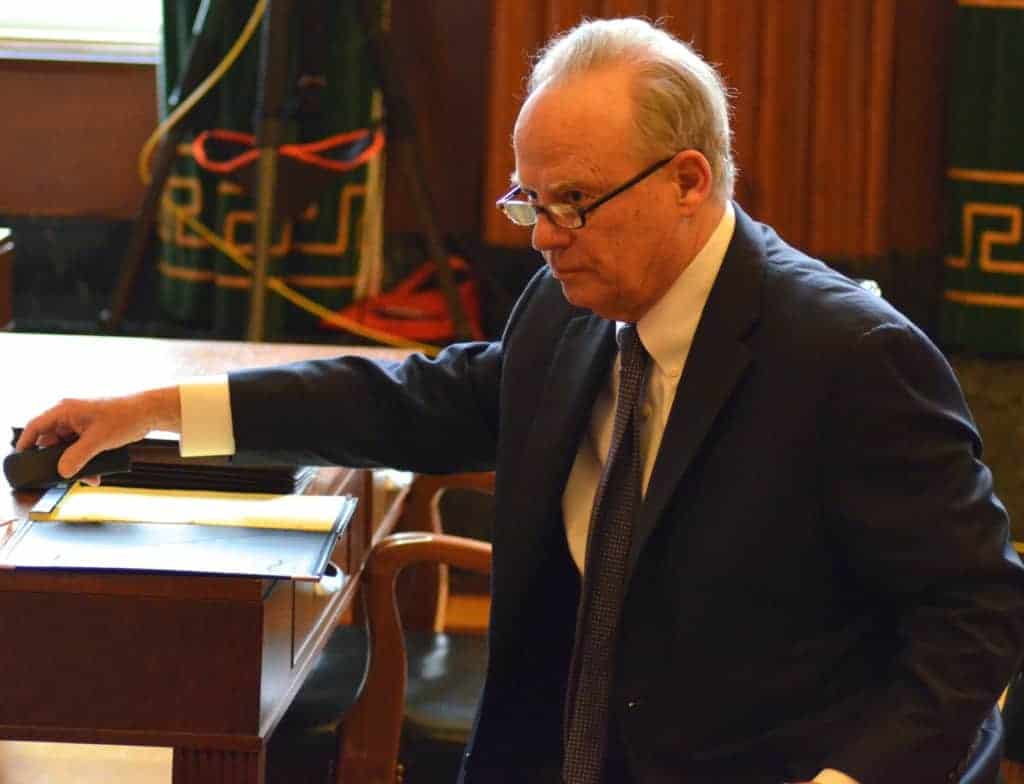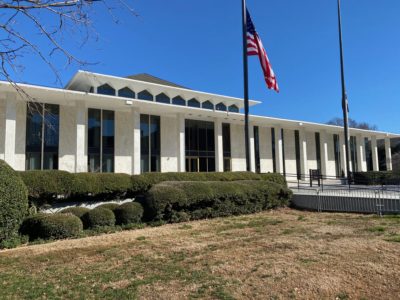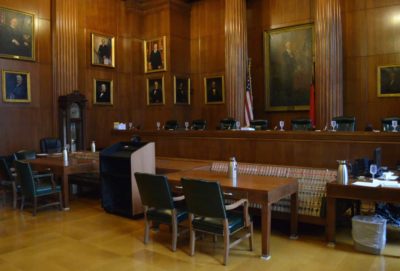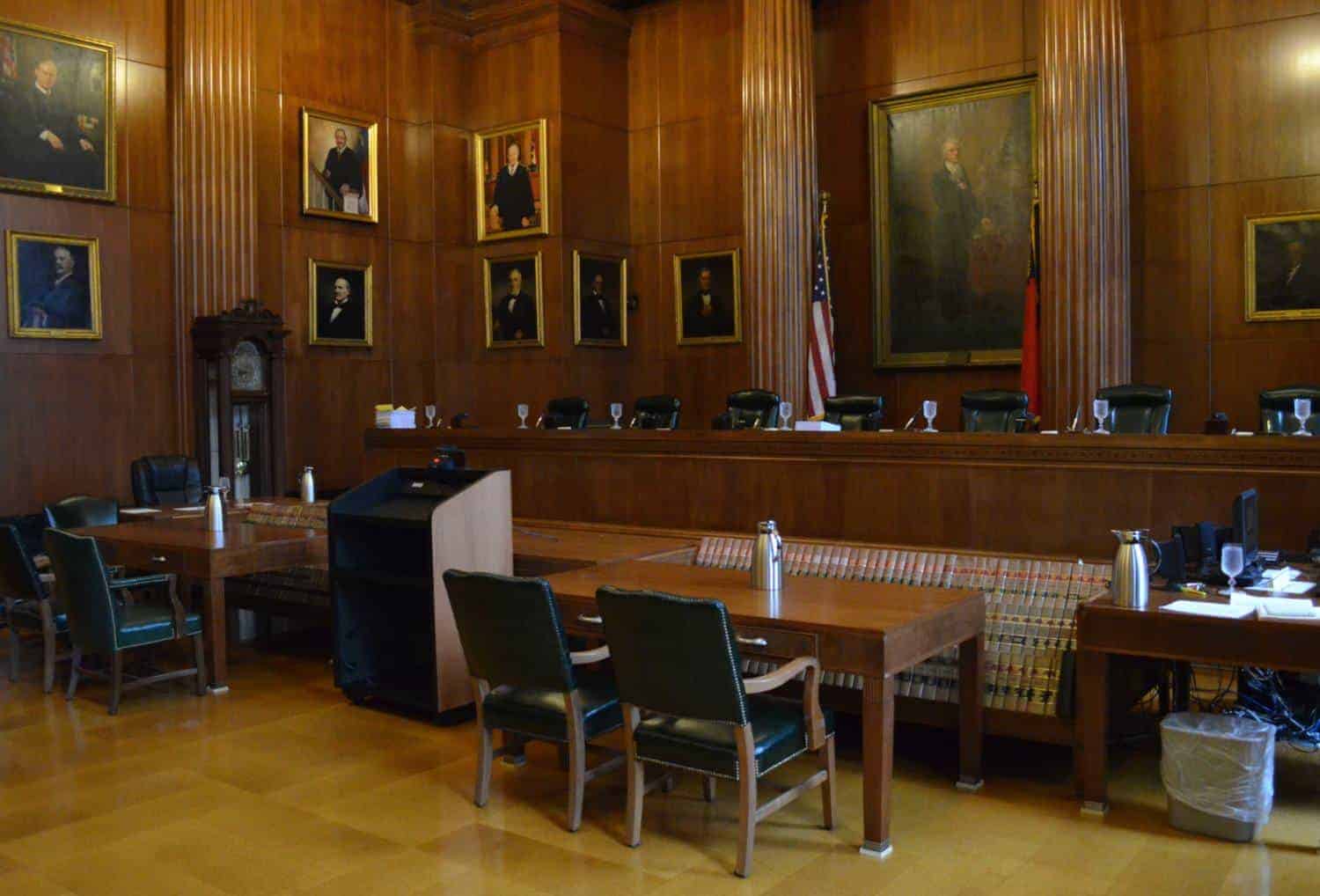North Carolina is one step closer to a decision about who is ultimately in charge of the public education of its students. The State Supreme Court heard arguments Wednesday from lawyers representing the State Board of Education, state Superintendent of Public Instruction Mark Johnson, and the state of North Carolina in the final step of a case that will determine whether the legislature may give Johnson more power in his role as the state’s top elected education official.
The case stems from legislation passed in December 2016, which transferred certain powers held by the State Board of Education to Johnson. Attorney Bob Orr, arguing for the State Board, said that transfer was a violation of the Board’s constitutional authority. He argued that the contention of his opposing counsel was that the General Assembly had the power to change constitutionally-granted powers.
“This is not about some statutory interpretation. This is not about general versus direct. This is a sweeping, unprecedented contention,” he said.

House Bill 17, passed in late 2016 during a controversial special session of the General Assembly, gave Johnson “direct” supervision and administration of the public school system, a notion that was a point of much discussion during Wednesday’s proceedings.
Attorney Hardy Lewis, arguing for Johnson, pointed out a specific passage in the state statute that was amended by House Bill 17.
“The general supervision and administration of the free public school system shall be vested in the State Board of Education. The State Board of Education shall establish all needed rules and regulations for the system of free public schools, subject to the laws enacted by the General Assembly,” the statute states.
He contended the phrase, “subject to the laws enacted by the General Assembly,” gave lawmakers tremendous latitude when it came to their actions.
“That phrase means that the General Assembly can revise and limit even the expressed constitutional powers,” he said.

While House Bill 17 gave Johnson “direct” supervision and administration of public education, it also maintained the State Board’s authority for “general” supervision and administration. Olga Vysotskaya de Brito, an attorney representing the state, said that while the General Assembly cannot abolish the State Board’s core functions, it can revise them. By leaving the State Board with “general” supervision and administration of public education, it retained the Board’s core authority while giving more direct control to Johnson.
“The difference there is that there is a general power, and the Board meets once a month,” she said. “The superintendent is on his job every day.”
Orr, however, argued that the General Assembly far outreached its authority by attacking the State Board’s constitutional powers.
“The whole concept was that the General Assembly couldn’t parcel out to whatever entity it chose or may create the powers that are supposed to be consolidated under the State Board,” he said.

Justice Barbara Jackson pointed out the odd nature of the case — an appointed Board arguing that its powers were being stolen by an elected official.
“That is kind of counter to what we generally see,” she said, noting the post of Superintendent of Public Instruction is accountable to the voters every four years, whereas the State Board members are appointed by elected officials and only rotate off the Board every eight years.
Justice Sam Ervin tried to get to the crux of the problem that brought the parties to the Supreme Court.
“Is the real issue: Does the Board have sufficient ultimate authority to carry out its role as the policy-making head of the system?” he asked.
Lewis said the issue was not whether the State Board had enough authority to act as policymaker, but who was in charge.
“I think the question that really is before the court is: Who is the ultimate authority with regard to public education in North Carolina?” he said.
Vysotskaya said that House Bill 17 left the State Board with plenty of powers, including the ability to make rules and regulations in opposition to the Superintendent if Board members disagree with how he is supervising the Department of Public Instruction.
“The state’s position is that (House Bill 17) preserves the general supervisory role of the Board, shows that the superintendent is bound by the directives of the Board, and that they are left with a variety of powers not related to direct supervision,” she said.
The Supreme Court proceedings Wednesday were the culmination of a battle that has been going on for more than a year. Following the passage of House Bill 17, the State Board voted to sue the state over the new legislation. That ultimately led to a hearing before a three-judge panel which ended in victory for Johnson.
Go here for all the legal documents in this case.
The Supreme Court also heard arguments in a case between the State Board and the North Carolina Rules Review Commission (RRC) Wednesday. The crux of that case is whether the fact that the Commission has to sign off on State Board rules before they can go into effect amounts to a usurpation of the State Board’s rule-making authority.
Orr, again representing the State Board, argued that if the General Assembly does not like a rule made by the State Board, it can change it, but that giving oversight to the Commission challenged the State Board’s authority.
“Can the General Assembly punt to this third-party commission, which reviews everything from barber rules to massage therapists?” he asked.
Chris Browning, representing the Rules Review Commission, said the Commission’s authority is narrow when it comes to evaluating the State Board’s rules and that it cannot consider things like quality or efficacy when making its decisions.
“That makes sense for the General Assembly to do that,” he said. “To require this readability in our rules, transparency, and requiring that the State Board of Education, just like any other board, agency, or commission, can’t go rogue.”
Drew Erteschik, also representing the State Board, said the Commission may also consider whether a rule is “reasonably necessary,” which can be interpreted fairly broadly.
“The constitution requires that the Board— not the RRC, but the Board— shall make all needed rules,” he said. “Yet, the RRC gets to decide whether rules get made and whether rules are needed.”
Vysotskaya, arguing again for the state, said the State Board already has a grievance process if it does not like the decision of the Commission: appeal of that decision to superior court.
The State Board sued the state and the Rules Review Commission in 2014. In July 2015, the lower court found in favor of the State Board, but in September 2017, the court of appeals ruled in favor of the defendants.
Go here for all the legal documents in this case.
There is no indication of when a decision is expected in these cases.
Recommended reading




